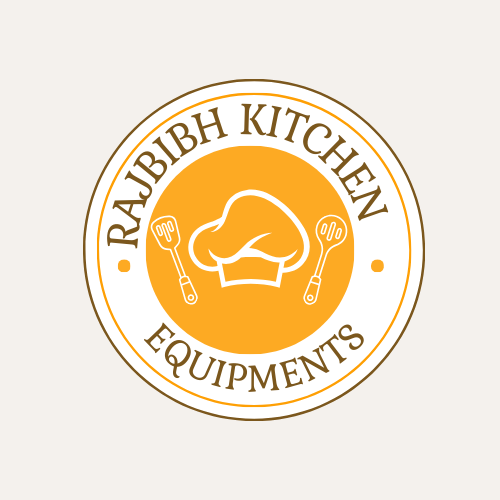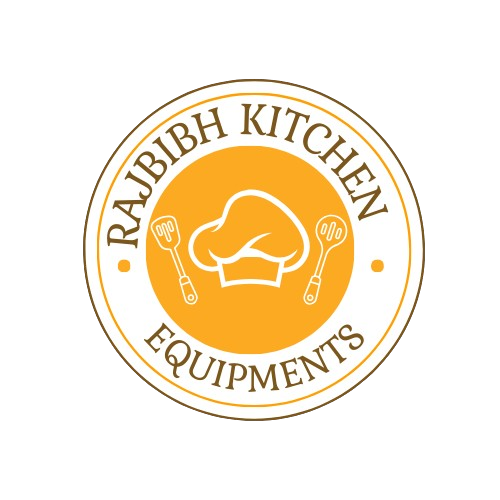In any foodservice operation, whether it’s a restaurant, grocery store, catering service, or hotel, refrigeration is a cornerstone of food safety and operational efficiency. Commercial refrigeration equipment plays a vital role in preserving the freshness, quality, and safety of perishable goods. From walk-in coolers to undercounter refrigerators, the right refrigeration systems can improve the way your business runs, reduce waste, and ensure compliance with health standards. This guide explores the different types of commercial refrigeration equipment and offers advice on selecting the best options for your needs.
1. Types of Commercial Refrigeration Equipment
There are various types of refrigeration equipment designed for different types of foodservice operations. Understanding the key differences and choosing the right one for your business is crucial.
Walk-In Refrigerators and Freezers
- Walk-In Coolers: Walk-in refrigerators are large, room-sized units designed for bulk storage. These coolers are ideal for businesses with a high volume of perishable goods like vegetables, dairy, or meats. They can be customized in size to fit your space and offer easy access to large quantities of food.
- Walk-In Freezers: Walk-in freezers are similar to walk-in coolers but are designed to store frozen items. These are essential for businesses that deal with frozen goods and need a significant amount of storage space. A walk-in freezer helps reduce the risk of food spoilage and ensures you can store large quantities of frozen food efficiently.
Reach-In Refrigerators and Freezers
- Reach-In Refrigerators: These commercial refrigerators are perfect for kitchens with limited space. Reach-in units provide quick access to chilled ingredients and are available in one, two, or three-door models. They are an excellent choice for quick-service restaurants, cafes, and small eateries that need a compact solution for food storage.
- Reach-In Freezers: Similar to reach-in refrigerators, reach-in freezers provide easy access to frozen products. They are ideal for quick storage and retrieval, making them a popular choice in both small and large kitchens.
Undercounter Refrigerators
- Undercounter Refrigerators: These units are designed to fit underneath counters, offering a space-saving solution for smaller kitchens. Undercounter refrigerators are perfect for keeping ingredients within easy reach of food prep areas, reducing the need to walk to a larger refrigerator.
Glass Door Refrigerators
- Glass Door Refrigerators: Perfect for both commercial kitchens and front-of-house operations, glass door refrigerators allow you to display refrigerated items like beverages, pre-packaged food, or fresh produce while maintaining temperature control. These units offer easy visibility without needing to open the door, improving energy efficiency.
Display Refrigerators
- Display Refrigerators: Commonly used in convenience stores, delis, and cafes, display refrigerators allow for showcasing chilled food and drinks to customers while maintaining proper storage conditions. These units are designed for visibility and are available in various styles, from open-air models to glass-fronted cases.
2. Factors to Consider When Choosing Commercial Refrigeration Equipment
Choosing the right refrigeration equipment can significantly affect your business’s efficiency, food quality, and overall profitability. Here are key factors to consider:
Capacity and Storage Needs
Different types of refrigeration units come in various sizes, from compact undercounter units to large walk-ins. Consider how much storage space you need based on your food volume. Ensure that the unit you choose can handle your business’s demands without overloading, as over-packed refrigerators can lead to inefficiency and potential food safety issues.
Energy Efficiency
Energy efficiency is essential, especially with the high operational costs associated with running refrigeration equipment. Look for units that are Energy Star-rated to reduce energy consumption. Energy-efficient refrigeration equipment helps lower utility bills while keeping the temperature consistent, contributing to both sustainability and savings.
Temperature Control and Reliability
Food safety regulations require maintaining specific temperatures for perishable goods. Whether you need refrigeration or freezing units, it’s crucial to choose equipment that maintains a consistent temperature and offers easy-to-use controls. Look for units that feature digital thermostats, temperature alarms, and self-diagnostics to ensure your refrigeration system is always operating efficiently.
Space Availability
Your kitchen or storage area’s available space will help determine which refrigeration units fit your needs. Measure the area where you plan to install the equipment before making a decision. Consider additional space for air circulation, which is essential for maintaining efficient operation.
Durability and Build Quality
Investing in durable, high-quality commercial refrigeration equipment is essential for ensuring long-term functionality. Look for units made with stainless steel or other robust materials that can withstand the daily wear and tear of a busy kitchen. High-quality refrigeration systems last longer and require fewer repairs, providing better value for your investment.
3. Benefits of Investing in High-Quality Commercial Refrigeration Equipment
Investing in top-tier commercial refrigeration equipment offers several advantages for your business:
- Food Safety and Compliance: Proper refrigeration ensures that your food items are stored at safe temperatures, preventing bacterial growth and contamination. This helps you comply with health and safety standards, which is essential for avoiding fines and closures.
- Extended Shelf Life: High-quality refrigeration keeps perishable products fresh for longer, reducing waste and maximizing your return on investment.
- Energy Efficiency: Energy-efficient refrigeration systems save money on your monthly energy bills. Look for Energy Star-certified equipment to ensure you’re choosing the most efficient models.
- Improved Operations: Well-maintained refrigeration units allow you to keep your kitchen organized, streamline workflows, and reduce downtime due to refrigeration failures.
- Customer Satisfaction: When food is stored correctly, it retains its flavor, texture, and nutritional value, ensuring the best possible quality for your customers.
4. Popular Brands of Commercial Refrigeration Equipment
Several trusted brands offer high-quality, durable refrigeration solutions for businesses. Some of the most reputable names in the industry include:
- True Manufacturing: Known for producing energy-efficient and durable refrigerators, freezers, and display cases, True Manufacturing is a top choice for many commercial kitchens.
- Hoshizaki: Specializing in ice machines and refrigeration equipment, Hoshizaki offers reliable units designed to withstand the demands of busy environments.
- Turbo Air: Turbo Air produces a wide range of refrigeration equipment that is designed for high performance, energy efficiency, and durability.
- Beverage-Air: Beverage-Air offers premium commercial refrigerators, freezers, and display cases that are perfect for various types of foodservice businesses.
- Carrier: Known for producing innovative refrigeration solutions, Carrier offers dependable commercial refrigeration units designed for efficiency and long-term use.
5. Maintaining Your Commercial Refrigeration Equipment
Regular maintenance is crucial for keeping your refrigeration equipment running smoothly. Here are a few tips for maintaining your commercial refrigeration systems:
- Regular Cleaning: Clean the condenser coils and evaporators regularly to ensure efficient operation. Dust and dirt can reduce the unit’s efficiency and increase energy consumption.
- Check Door Seals: Ensure that door seals are in good condition to prevent air leakage, which can reduce cooling efficiency.
- Temperature Monitoring: Regularly check the internal temperatures of your units to ensure they meet food safety requirements.
- Professional Servicing: Schedule regular professional maintenance to catch any potential issues before they become costly repairs.
Conclusion
Commercial refrigeration equipment is vital to the smooth operation of any foodservice business. From preserving food safety to improving energy efficiency, the right refrigeration units can make a significant impact on your business’s profitability and success. By understanding the different types of refrigeration equipment, considering key factors like capacity, energy efficiency, and durability, you can select the best solution to meet your needs.


